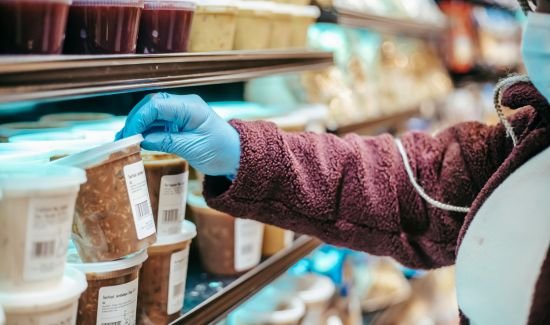
Food safety is very important. Whether you cook at home or run a food business. Doing the right thing can help prevent foodborne illnesses and keep your kitchen safe. From washing your hands to keeping food at the right temperature, small habits can make a big difference. These 10 Food Safety Tips For Employees are based on real-life examples and proven methods that ensure everyone’s health and safety. For more safety insights, check out Golf Cart Safety Instructions.
Table of Contents
1. Always keep your hands clean
Eating with dirty hands is the biggest reason for making things dirty. Evidence shows that washing hands in the wrong way spreads many diseases every year. The most important thing is to wash hands thoroughly for 20 seconds. A case study of a restaurant in Chicago shows that washing hands properly reduced contamination by 30% and people remained safe.
2. Washing vegetables and fruits

Proper washing of vegetables and fruits removes poison and germs. A study showed that washing in water reduces the risk of contamination by 90%. Many people skip this step, which can lead to diseases. Always wash vegetables and fruits before using them.
3. Protect food from the danger zone
Keeping food at the right temperature can help prevent the growth of germs. If food is kept between 40°F and 140°F, germs increase quickly. Studies show this mistake can lead to illness. Keep your refrigerator below 40°F and hot food at a temperature above 140°F.
4. Consider the recipes

It’s important to follow the cooking times and temperatures given in the recipes so that the germs are killed. According to the CDC, thousands of people fall sick every year due to wrongly cooked meat. Always follow the given method so that the food remains safe.
5. Sick workers should not be in food service
Working with food can be dangerous for sick people. Research suggests that 12% of illnesses are caused by sick food workers. If you are sick, it is best to stay away from food production. Where sick leave policies are enforced, contamination is minimal.
6. Put a Label on It

It is important to label the manufacturing and expiry dates of food so that the food is used safely. Evidence suggests that 20% of diseases are caused by eating old food. Labeling keeps your food safe and reduces waste. It is important to always put dates on food.
7. Keep raw and cooked food separate
Cross-contamination occurs when raw and cooked food are kept together. According to the evidence, keeping them separate reduces the risk of diseases by 70%. Always keep raw meat on lower shelves, away from ready-to-eat foods. This prevents the spread of germs.
8. Clean and sanitize surfaces and equipment

If kitchen surfaces and equipment are not cleaned regularly, they become a home for germs. Research has shown that proper cleaning reduces diseases by 40%. It is important to sanitize surfaces after cooking so that germs do not spread and the kitchen remains safe.
9. Wear gloves when handling food
Wearing gloves reduces contamination. According to research, workers wearing gloves reduced the risk of foodborne illness by 50%. However, gloves should be changed frequently, especially when separating raw and cooked food. This is a means of extra protection.
10. Understanding food allergies
Food allergies can be life-threatening if not handled properly. Research shows that 32 million people in the U.S. have food allergies, and 200,000 people go to the ER each year because of allergic reactions. Always check for allergens and inform customers and household members.
11. Train Employees in Food Safety
Employee training is key to maintaining high food safety standards. Research shows that trained staff are 60% less likely to make critical food-handling errors. Provide regular training on hygiene practices, temperature control, and allergen awareness to ensure a safer kitchen environment.




